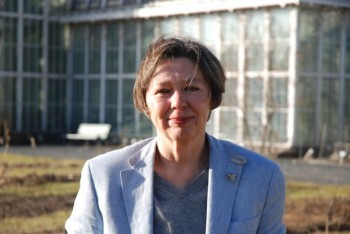Search results for "2010/02/2011/04/2009/10/writing-and-power"
Temporarily out of order
Extracts from the novel Hullu (‘The lunatic’, Teos, 2012). Introduction by Soila Lehtonen
I found myself standing in front of the noticeboard. The rules were on a sheet of paper:
Ward 15 5-C
MEAL TIMES:
Breakfast 8:00 AM
Lunch 11:45 AM
Dinner 4:30 PM
Evening Snack 7:30 PM
COFFEE:
After lunch
We recommend leaving money, valuables, and bankbooks for storage in the ward valuables locker. We take no responsibility for items not left in the locker! Money may be retrieved 1–3 times per day. Use of mobile phones on the ward by arrangement.
VISITING HOURS:
M–F 2–7 PM
Sa–Su 12–7 PM
PERSONAL CLOTHING:
Use of one’s own clothing by individual arrangement. Clothing care individual. Washer and dryer available for use in the evenings after 6 PM.
OUTDOOR RECREATION:
Arranged individually according to health condition. Outdoor pass does not include the right to leave the area.
VACATIONS:
Vacations arranged during morning report, according to health condition.
NOTA BENE!
Smoking is only allowed on the smoking balcony! Smoking prohibited from 11 PM to 6 AM.
Pastor Karvonen available by appointment.
These were impossibly difficult rules. I read them through three times and simply did not understand. ‘Clothing care individual.’ ‘Outdoor pass does not include the right to leave the area.’
What did these sentences mean? With whom did you schedule the pastor and how? And why? More…
Awards for young fiction
29 January 2010 | In the news
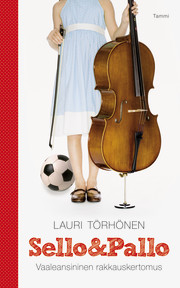 This year’s Topelius Prize has gone to Sello & Pallo. Vaaleansininen rakkauskertomus (‘Cello & Ball: a pale blue love story’, Tammi), a first novel for young people by the scriptwriter and film director Lauri Törhönen. More…
This year’s Topelius Prize has gone to Sello & Pallo. Vaaleansininen rakkauskertomus (‘Cello & Ball: a pale blue love story’, Tammi), a first novel for young people by the scriptwriter and film director Lauri Törhönen. More…
Jukka Sarjala: Kotomaamme outo Suomi [Finland, our strange homeland]
4 April 2013 | Mini reviews, Reviews
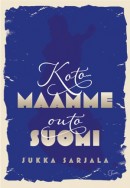 Kotomaamme outo Suomi
Kotomaamme outo Suomi
[Finland, our strange homeland]
Helsinki: Teos, 2013. 264 p.
ISBN 978-951-851-440-7
€ 27, paperback
Jukka Sarjala, ex-director general of the Finnish National Board of Education and bibliophile, is the author of several works of non-fiction, mainly in the field of history. In this book he focuses on the phenomena and events that characterised early twentieth-century Finland, some of them rather peculiar. In a couple of dozen chapters written in a humorous and conversational style the author does not conceal his own opinions, for example, on the foolishness of politicians. Much of the writing is devoted to the era of Finnish independence and the Finnish Civil War, as well as to episodes from political history, such as the story of the attempt to import to the newly independent country a German-born prince as King of Finland, the vagaries of the political far right and far left, the recruitment of Finnish Reds into the British Army – and the horse that gave rise to a small rebel movement. Sarjala draws many fascinating portraits of early twentieth-century figures, for example the utopian socialist Matti Kurikka and the founder of a party that in some ways anticipated the present-day True Finns [Perussuomalaiset], the talkative politician Veikko Vennamo (1913–1997). Although the book lacks footnotes and a bibliography, it demonstrates its author’s extensive reading.
Translated by David McDuff
Blowing in the wind
26 November 2010 | Reviews
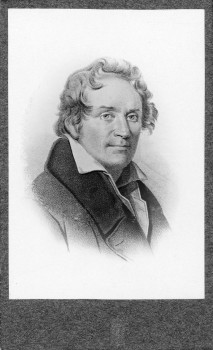
Clarinettist who travelled: Bernhard Crusell
Bernhard Crusell: Keski-Euroopan matkapäiväkirjat 1803–1822
[Bernhard Crusell: Travel Diaries from Central Europe, 1803–1822]
Suom. ja toim. [Translated into Finnish and edited by] Janne Koskinen
Helsinki: Suomalaisen kirjallisuuden seura [Finnish Literature Society], 271 p., ill.
ISBN 978-952-222-090-5
€28, hardback
Born the son of a poor bookbinder on the west coast of Finland, Bernhard Crusell (1775–1838) had talents as a clarinettist and composer that brought him considerable fame, both in his native country and further afield. Hannu Marttila reads the diaries he wrote on his travels in Europe, where his meetings with the great and the good chart the emergence of the new Romantic sensibility
‘Felix is a most beautiful child, and he is also said to be very unassuming. In his compositions one immediately recognises the signs of genius and good training. He continues to study under Zelter, and, thanks to an anticipated large inheritance, he, too, may become an independent composer. People here think he may even become another Mozart.’ More…
Intelligent living
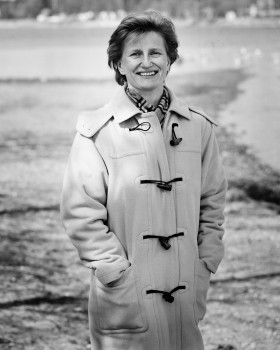
Minna Lindgren. Photo: Ville Palonen.
In Ehtoolehdon tuho [‘The decline of Twilight Grove’, Teos, 2015), the final novel in a trilogy about life in an assisted living home, employing human staff has become too expensive and the old folk are part of a pilot project in which they are cared for by electronic devices, monitors, cameras, ‘smartwalls’ and cleaning robots: ‘there was intelligence everywhere, masses of it, just a hiccup and something terribly intelligent would happen.’
The aged lady residents don’t like their new life, but they’re resilient; they’re not about to let the new technology defeat them…
Minna Lindgren’s mordantly satirical, often hilariously funny writing has earned her a wide readership. Translations of the trilogy are soon to appear in English, German and French.
![]()
An excerpt from Ehtoolehdon tuho [‘The decline of Twilight Grove’, Teos, 2015). Review by Soila Lehtonen
‘You’re 97 today! Your wakeup call service today congratulates!’
As if she wouldn’t have remembered. Ninety-seven was almost a hundred. She and Irma had decided that they would refuse to turn one hundred. It would only make trouble. One lady, in the bottom apartment of the A staircase, had received an invitation to the health centre on her birthday. Apparently all five-year-olds were called in for monitoring of their motor and psychological development, and when this lady turned 105, the computer system thought she was a toddler. The computer didn’t recognise numbers over one hundred. Siiri thought the lady should have kept the appointment; she would have done, for the tests were fun. You had to draw a triangle and walk along a straight line. Not that easy for someone of 105. But the lady didn’t go, she just made a terrible fuss about it and complained to everyone, until she died before her complaints reached the right official. More…
Rauhan ytimessä. Sadankomitea 50 vuotta [In the core of peace. Sadankomitea at 50]
3 April 2014 | Mini reviews, Reviews
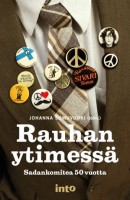 Rauhan ytimessä. Sadankomitea 50 vuotta
Rauhan ytimessä. Sadankomitea 50 vuotta
[In the core of peace. Sadankomitea at 50]
Toim. [Ed. by] Johanna Sumuvuori
Helsinki: Into, 2013. 170 pp., ill .
ISBN 978-952-264-264-6
€23, paperback
The nonpartisan Sadankomitea (‘Committee of 100’) peace organisation was founded in Finland in 1963 by the young radicals of their time. The movement was inspired by certain British non-governmental organisations. Its policies were established by research, discussion and writing rather than by direct action and marching. An important feature of the movement, especially during the Cold War, was its distinction from Rauhanpuolustajat (The Finnish Peace Committee), which was considered to be a mouthpiece of the Soviet Union. The movement’s discussion forum was the journal Ydin (‘The core’), founded in 1967, whose articles had more weight than its circulation might have suggested, a fact that also indicates Sadankomitea’s influence. This commemorative book contains a dozen or so articles in which peace movement veterans – including Finland’s foreign minister Erkki Tuomioja, who is a founding member – and younger activists discuss the movement’s work for peace. The fascinating articles range from personal recollections to analytical overviews.
Translated by David McDuff
Fight Club
16 April 2012 | Fiction, Prose
A short story from Himokone (‘Lust machine’, WSOY, 2012). Interview by Anna-Leena Ekroos
Karoliina wondered whether her name was suitable for a famous poet.
Her first name was alright – four syllables, and a bit old-fashioned. But Järvi didn’t inspire any passion. Should she change her name before her first collection came out? Was there still time? She had four months until September.
Even if The flower of my secret was the name of some old movie, Karoliina clung to the title she’d chosen. It described the book’s multifaceted, erotically-tinged sensory world and the essential place of nature in the poems. Karoliina loved to take long walks in the woods. Sometimes she talked to the trees.
She had been meeting new people. At the writer’s evening organised by her publisher, she’d been seated next to Märta Fagerlund, in the flesh. Karoliina had read Fagerlund’s poems since her teens, and seen her charisma light up the stage on cultural television shows.
At first Karoliina couldn’t get a word out of her mouth. She just blushed and dripped gravy on her lap. But the longer the evening went on, the more ordinary Märta seemed. She was even calling her Märta, and telling her about a new friend on Facebook who said how ‘awfully funny’ Märta was. In fact, the squeaky-voiced Märta, with her enthusiasm for Greece, was a bit dry, and, after three glasses of white wine, tedious. But Karoliina never mentioned it to anyone, because she wasn’t a spiteful person. More…

